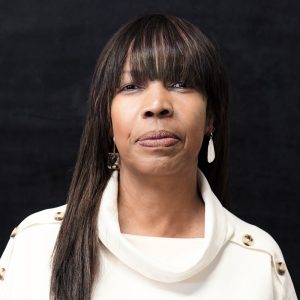
If the heart gives grace to every work, Grace Kisa gives heart to the work. The Kenyan-born artist’s serene, but meteoric rise in the art world has put the culture on its ear and caused art experts and critics to take notice. But Kisa’s ascension was not a lighting strike of sudden appreciation and acceptance. Art is not immune to issues of race class and gender, and often women artists are associated with textile arts, and as a consequence they receive limited recognition in other art forms. But for Kisa who has been honing her craft for years — most of her life in fact — her comfort level with a multiplicity of mediums affords her the confidence and dexterity to transition seamlessly from one art form to another. -roz edward

What’s your earliest memory of making art?
When I was a little girl maybe 4 or 5 years old, my daddy used to interview us and make recording of us. … he was interviewing me and he asked me what I wanted to be when I grew up. I told him I wanted to make pictures. I didn’t really know exactly what
that meant at the time, I just knew making pictures.
Why was it always art for you? I was a painfully shy child and for me it was a way of being part of the conversation without really having to be in the conversation. It was one way of crossing over to communicate with other people.

Are there real life situations that impacted your work?
Always. I grew up all over the world. My dad used to work for the United nations and then he worked for the World Bank which afforded our family the opportunity to travel around the globe … and we lived in an international community. All of that is reflected in my work.
How has your work changed over time?
It has changed just from living. I get feedback from what’s going on with society, movies I see, music I listen to, art shows I see and artist studios I visit. So with each new experience and each new mastery of a medium it’s added to my repertoire, so the work evolves and changes through that.

You are so versatile and have such a broad range of work. What inspires you?
Everything. From watching how little kids create without rules to going to folk festivals where there are no rules. It’s really pushing the boundaries between what you learn in school and college and then when you go out into the world you find out that you had to learn the rules to figure out how to break them.











